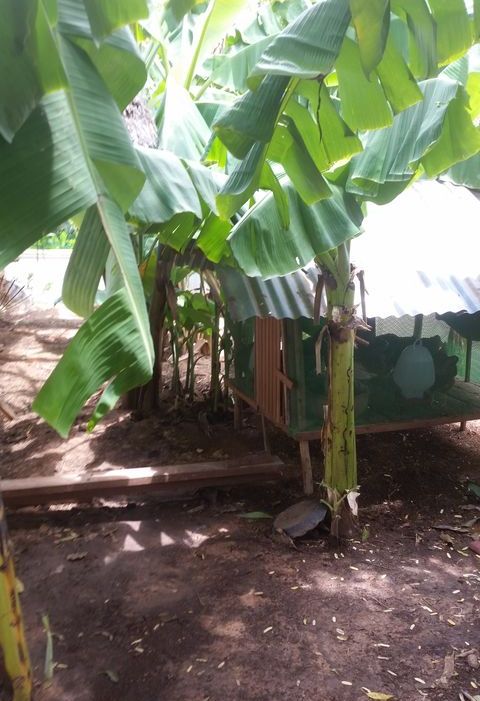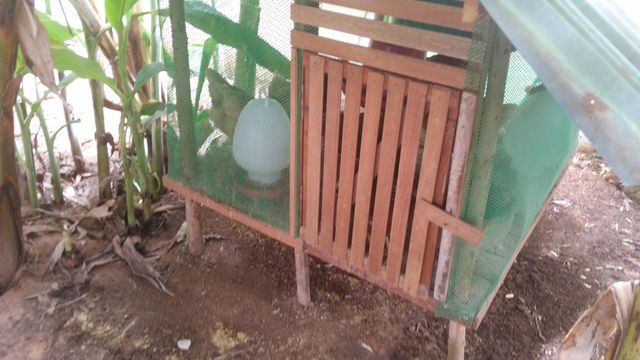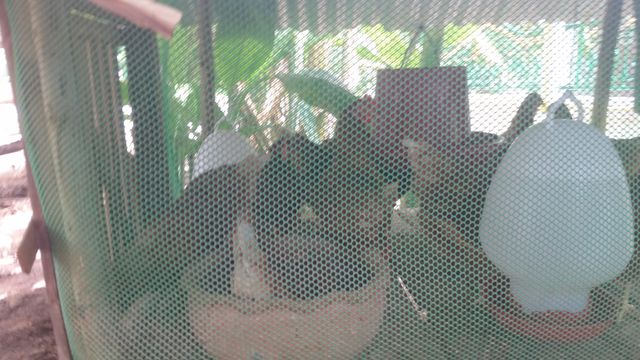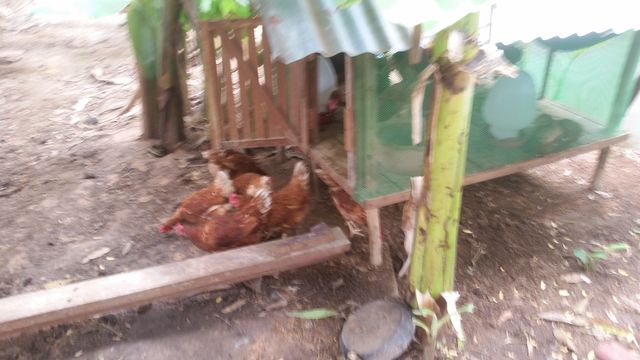Animal Protection
concerns us all!
We've done a lot ...
but there's so much more to be done!

We've done a lot ...
but there's so much more to be done!

It was by sheer coincidence that we became aware of an unusual sort of cruelty against animals. We were on our way in Thailand on behalf of animal protection tracking some dog hunters when we were invited for dinner by a Thai family. Very nice people owning some rice paddies from whom we had bought rice as pet food before. After the meal, we walked through the garden and saw their multitude of animals: cats, dogs, chickens and geese. A beautiful garden with enough space for each of the animals. All seemed peaceful; the ambiance was serene ... but what was that? A small prison hidden under two banana plants! It should protect 11 chickens against the sun. 11 chickens with food and water on less than one square meter? We were astonished to find "factory farming" in such a place and our hosts were astonished by our reaction for this is quite normal to them. Everybody has been keeping laying hens in such laying rows since ancient times. It's a custom shared throughout Asia.




There are two sorts of chickens in Thailand. The long-legged ones that roam freely. Hens always lay their eggs in the same "baskets" until there are about twelve of them. After the chicks hatch, mother shows them the ways of life. Roosters mostly land in cock fights whereas hens serve as food and as a means of reproduction. The laying hens, on the other hand, sit in laying rows and produce eggs. And why can't these roam freely? Because they would lay their eggs anywhere and people would lose some by not finding them, or another animal - like a snake - would eat them.
We told our hosts tales of happy and unhappy animals and that neither man nor beast should be imprisoned. As you can see on the last picture, all chickens got their freedom. But there's a whole lot of work left to be done in this domain. Let's start doing it!